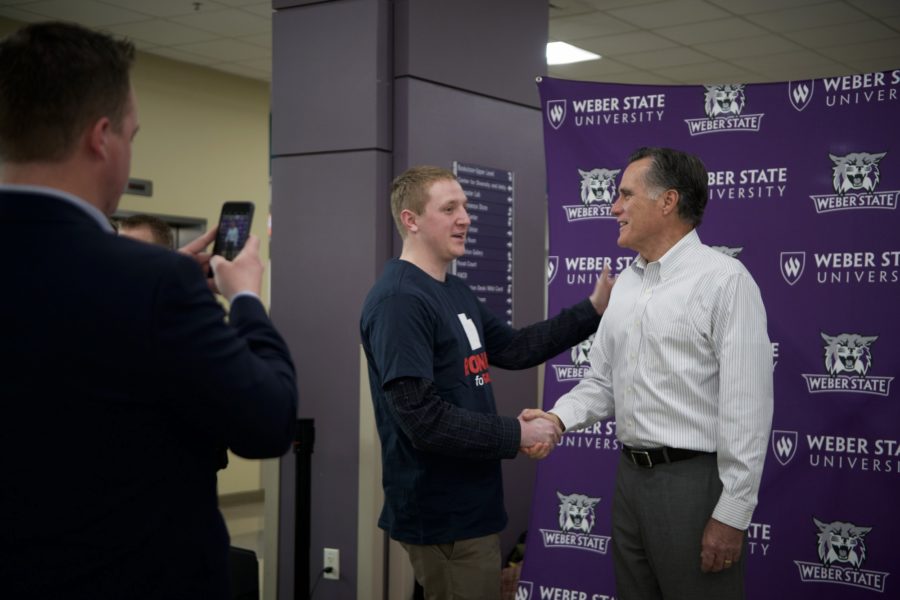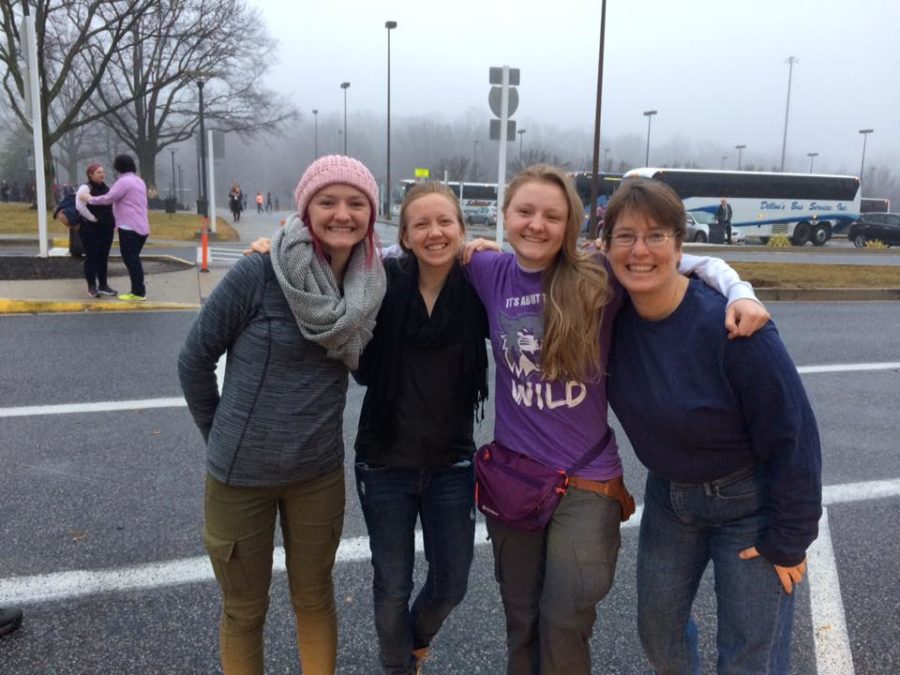[media-credit id=35 align=”alignright” width=”300″] [/media-credit]Someday, it might be commonplace for people traveling by plane in the United States to be able to weigh and tag their own luggage. A group of Weber State University business students have proposed that a set of advanced check-in kiosks found at the Charles de Gaulle Airport in Paris, France, should replace the kiosks currently used by Delta Air Lines at the Salt Lake City International Airport. These kiosks are described as being “full-service,” which allows passengers to check themselves in for their flights just as Delta’s kiosks do, in addition to weighing and tagging.
[/media-credit]Someday, it might be commonplace for people traveling by plane in the United States to be able to weigh and tag their own luggage. A group of Weber State University business students have proposed that a set of advanced check-in kiosks found at the Charles de Gaulle Airport in Paris, France, should replace the kiosks currently used by Delta Air Lines at the Salt Lake City International Airport. These kiosks are described as being “full-service,” which allows passengers to check themselves in for their flights just as Delta’s kiosks do, in addition to weighing and tagging.
The project began when the group of five students chose to study Delta Air Lines and its check-in process as part of a supply chain management simulation course. Two members of the group, Sarah Tribe and Alex MacKay, initially came up with the idea for the full-service kiosks through their own imaginations, but then discovered the kiosks existed. Tribe said she found this type of full, self-service technology only being used through the Air Canada airline. In order to research just how efficient these kiosks would be, she and MacKay decided to travel to Paris, and were able to fly for a total of $500 through the help of Tribe’s mother, who works for the Salt Lake City International Airport.
“We decided it would be . . . a lot more efficient, and people would spend less time waiting if they could weigh and tag their own bag at the kiosk,” Tribe said.
Aqeel Rasheed, another member who took part in the project, noted that, although each of the full-service kiosks are priced at a starting cost of $5,000, he said this is only an initial cost for the airline, and the kiosks would eliminate the need for seven of the 10 employees who were helping with the kiosks and the baggage.
“So, it would be a payoff over some time,” Rasheed said.
The group’s report states that at least $231,000 could be cut from the annual payroll.
To arrive at their findings, the students spent hours at the airports during peak hours, counting passengers and the time it took them to go through the check-in and weighing process. Upon inputting the data into Arena, a business process simulation software, the students found the wait times decreased when the full-service kiosks were implemented.
According to Tribe, Delta’s current process involves three ways a person can check in and weigh their baggage. Two of those ways, checking in online or at a kiosk, require a person to weigh their baggage in a separate step of the process. The third option allows a passenger to have an airline employee check in and weigh the baggage.
Through data provided by Delta, Tribe found that 86 percent of passengers utilize the kiosks over checking in online or through an airport employee.
Nicole Montgomery, customer training supervisor at the Salt Lake City International Airport, helps in training employees to use the kiosks. Prior to the students’ research, she said she had not known about the full-service kiosks, but believes they would be beneficial.
“I believe they would cut down in-line wait times, helping the airport process passengers through the TSA check point . . . (causing) less of a rush of people at once,” Montgomery said.
Although she said she would be interested to see pilot testing for the full-service kiosks, Montgomery noted that “there are government restrictions that prevent airlines from allowing passengers to have access to the baggage tags or baggage-tag printers.”
Stephen Hill, the professor for the course, said this project was “definitely unique.”
“I don’t have many students traveling halfway around the world for the weekend,” Hill said.
Although Hill said the goal of the project is not to provide consultation for organizations, he said he hopes the group will be able to “pass (the results) on . . . you never know, it could be implemented down the road.”
Two other students who are credited for contributing to the research are Jordan Shurtleff and Mike Grondel.











